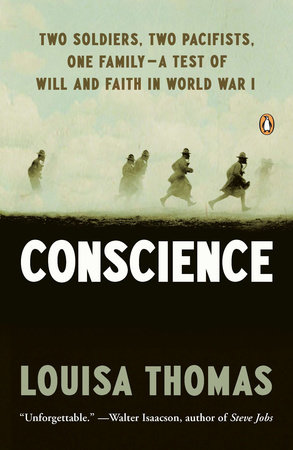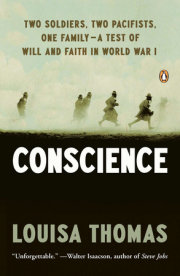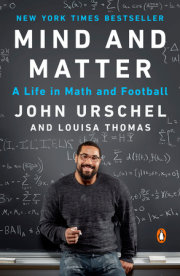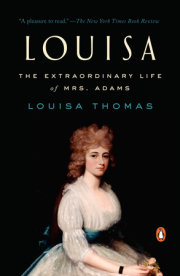It was a time of testing and uncertainty. Even before World War I, there was a sense that country was changing. As Louisa Thomas reveals in
Conscience, for the Thomas brothers, the struggle did not only take place on the battlefields. It was within themselves. Sons of a Presbyterian minister and grandsons of missionaries, the brothers shared a rigorous moral code, Princeton educations, and a faith in the era’s spirit of hope. Their upbringing prepared them for a life of service, but the war challenged their notions of citizenship, faith, and freedom and threatened to tear their family apart. Centered around the life of the oldest, Norman Thomas,
Conscience tells the story of four brothers, and the choices they made.
When the United States entered the Great War, Ralph Thomas enlisted right away, heeding President Woodrow Wilson’s call to fight for freedom. A captain in the Army Corps of Engineers, he would be wounded in France. Arthur, the youngest, was less certain about the righteousness of the cause but was sensitive to his obligation as a citizen—and like so many men eager to have a chance to prove himself. Evan became a conscientious objector, protesting conscription; when the truce was signed on November 11, 1918, he was in solitary confinement. Norman Thomas was a Presbyterian minister when the war began. Before the United States entered the war, he became a pacifist, and by the time it was over, he was a Socialist. He would go on to run for President six times on the Socialist ticket. The Thomas brothers argued about what was possible and what was principled, what was right and what was wrong—and they told each other to have courage. .
Conscience moves from the gothic buildings of Princeton to the tenements of New York City, from the West Wing of the White House to the battlefields of France, tracking four young men navigating upheaval. In telling the story of their journeys, Thomas recovers a way of talking about personal liberty and social obligation, about being true to oneself and to one another.






